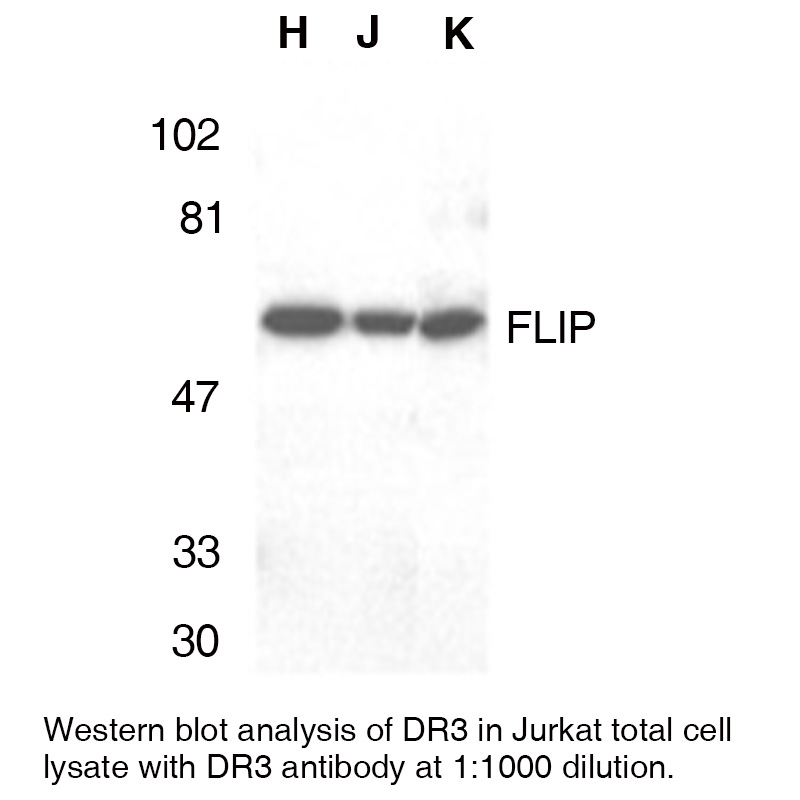Anti-Human DR3 (NT)
Data
- -
- -
Antibody DetailsProduct DetailsReactive Species Human Host Species Rabbit Immunogen PN:D276 Product Concentration 0.5 mg/ml Formulation This polyclonal antibody is formulated in phosphate buffered saline (PBS) pH 7.4 containing 0.02% sodium azide as a preservative. Storage and Handling This polyclonal antibody is stable for at least one week when stored at 2-8°C. For long term storage, aliquot in working volumes without diluting and store at –20°C in a manual defrost freezer. Avoid Repeated Freeze Thaw Cycles. Country of Origin USA Shipping Next Day Ambient RRIDAB_2829907 Each investigator should determine their own optimal working dilution for specific applications. See directions on lot specific datasheets, as information may periodically change. DescriptionDescriptionSpecificity Rabbit Anti-Human DR3 recognizes an epitope near the N-terminus of mouse and human DR3. This polyclonal antibody was purified using affinity chromatography. Background Apoptosis, or programmed cell death, occurs during normal cellular differentiation and development of multicellular organisms. Apoptosis is induced by certain cytokines including TNF and Fas ligand of the TNF family through their death domain containing receptors, TNFR1 and Fas. A novel cell death receptor was recently identified by several groups independently and designated DR3, Wsl-1, Apo-3, TRAMP and LARD1-5. The ligand for this novel death receptor has been defined as TWEAK, also termed Apo3L. DR3 is highly expressed in the tissues enriched in lymphocytes including PBL, thymus and spleen. Like TNFR1, DR3 induces apoptosis and NF-κB activation. PubMed References & Citations1. Chinnaiyan, AM. et al. (1996) Science 274:990-2. 2. Kitson, J. et al. (1996) Nature 384:372-5. 3. Marsters, SA. et al. (1996) Curr Biol 6:1669-76. 4. Bodmer, JL. et al. (1997) Immunity6:79-88. Technical ProtocolsCertificate of Analysis |
Related Products
- -
- -
Prod No. | Description |
|---|---|
D252 | |
D253 | |
D283 | |
D274 | |
D276 | |
D344 |



